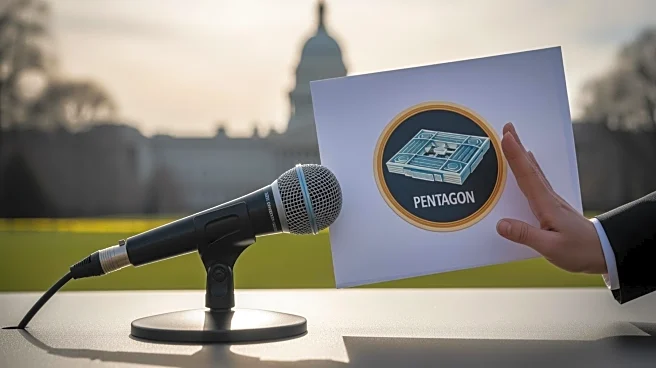What's Happening?
NPR has joined other major news organizations in refusing to sign a new policy from the Pentagon that seeks to control how news outlets cover defense-related topics. The policy, ordered by Secretary of
Defense Pete Hegseth, has been criticized for potentially limiting press freedom and journalistic independence. NPR's editor in chief, Thomas Evans, stated that the network will not compromise its commitment to providing independent journalism. This decision comes amid a challenging period for NPR, following Congress's decision to strip public broadcasting of federal funding due to allegations of liberal bias. The loss of funding has forced NPR to plan significant budget cuts, impacting local and tribal radio stations that rely on federal support.
Why It's Important?
NPR's refusal to comply with the Pentagon's policy underscores the ongoing tension between media organizations and government efforts to influence news coverage. This stance is crucial for maintaining journalistic integrity and protecting press freedom, especially in a politically charged environment. The loss of federal funding for public broadcasting highlights the vulnerability of media outlets to political pressures and the need for alternative funding models. NPR's decision to prioritize independent journalism over potential financial incentives reflects a commitment to serving a diverse audience and upholding its mission despite economic challenges.
What's Next?
As NPR navigates the loss of federal funding, the network will need to explore new revenue streams and adapt its operations to ensure sustainability. This may involve expanding digital and multimedia content to reach broader audiences and attract new sources of support. The broader media landscape will be watching closely to see how NPR and other public broadcasters respond to these challenges and whether they can maintain their editorial independence. The refusal to sign the Pentagon's policy may also prompt discussions about the role of media in holding government accountable and the importance of protecting press freedom.










